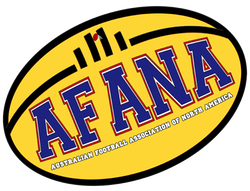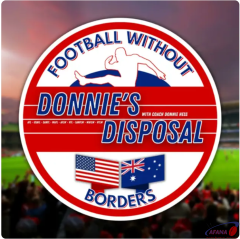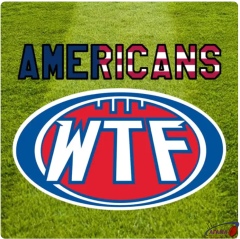by Johnson Leung reporting for AFANA in Melbourne
Negotiations for the AFL's domestic television rights from 2012 to 2016 have been shelved indefinitely. League and local TV networks must now await the announcement on changes to the Australian Federal Government's protected sporting events policy until after the Federal election on August 21.
"Anti-siphoning laws" give the Australian free-to-air TV networks the first right to bid for key sporting events, including the Olympic and Commonwealth Games, the FIFA World Cup, the AFL and National Rugby League competitions, Formula One, international cricket, and Australian Open tennis. The current list expires at the end of 2010 and is under review.
Before Kevin Rudd was replaced as Prime Minister, he and Communications Minister Stephen Conroy were planning to set up three lists. The first list would cover events that could only be shown on free-to-air TV. The second list would cover events that the free-to-air networks would have first rights to, including the AFL and NRL competitions. The third list would include events that both free-to-air and pay TV companies could bid for. AFL Chief Executive Andrew Demetriou has lobbied the Federal Government to move 4 of the 8 weekly matches (expanding to nine in 2012) to the third list, enabling the AFL to sell the matches directly to Foxtel. Demetriou also wants to choose which four games go on that list, but the free-to-air networks want control of that decision.
The proposed changes were sent to Rudd in mid-June before he was replaced in the position by his deputy Julia Gillard on June 24 in a Labor Party leadership coup. Fears had developed in the media industry this year that the Federal Government would hold off the announcement until after the upcoming election. However Demetriou was keen to kick-start negotiations and visited the networks during June. The broadcasters have also pushed for an early resolution in a bid to finalize advertising sales and marketing campaigns.
The AFL is also anxiously awaiting a verdict on whether the free-to-air networks' digital secondary channels would be given more freedom under new legislation to show first-run sporting events. Such a move would help them in televising low-rating prime-time AFL games to NSW and Queensland via their HD channels. If the Federal Government fails to significantly change the list, allowing the free-to-air networks to broadcast AFL on their digital channels, it risks angering News Limited and Foxtel's Chief Executive Kim Williams, who is unafraid to lobby aggressively and publicly for the pay TV industry.
Another possible change under anti-siphoning laws could see News Limited (which owns 25 per cent of Foxtel and 50 per cent of Fox Sports as well as holding management rights to both) guaranteed better quality AFL games and retaining its high-rating Monday night NRL game. Such a decision could prove unpopular with the public who may be unwilling to take up expensive pay TV subscriptions. There are also growing fears the AFL's heavy lobbying on behalf of Foxtel could backfire should the pay TV company win the right to bid only for the less attractive fixtures, and therefore remove any competitive counter-bidding.
Media experts were divided on whether the AFL could reap A$1 billion in its next deal. In 2005 Seven and Ten paid a total of A$780 million for the current deal, with pay TV contributing an estimated A$225 million. Some experts, including advertising guru Harold Mitchell, believe that this figure could even be surpassed. Others believe that while the AFL is a valuable TV product and generates a lot of programming volume and pulls big ratings in Victoria, South Australia and Western Australia, it is already overpriced.
Channel Nine Melbourne's Managing Director Jeff Browne has signaled the network's intent to reclaim the rights after last broadcasting AFL in 2006. However it is believed Nine could play a nuisance role in the bidding process, reserving its funds for a better deal for NRL TV rights, currently held by the network and due to expire at the end of 2012. In mid-July Nine dropped the Australian rights to Wimbledon after nearly 40 years. This saved the network about A$15 million in license fees and production costs, and freed up cash to bid for both AFL and NRL rights. Industry sources maintain the AFL has underestimated the venom in the free-to-air industry, with Nine's interest being to bid up the price Seven and Ten pays, leaving Ten with no money to launch a strike for the three free-to-air NRL games. Nor will Nine be seriously concerned over Seven's bid for the high rating State of Origin series, given its belief Gallop cannot unbundle the rights and Seven hasn't enough TV slots to accommodate both football codes.
The prevailing view is that the next AFL rights will prove a battle between Seven and Ten (which share the free-to-air rights and the finals, and must bid together for the next rights) and Nine, which appears the only free-to-air network keen to televise Monday night football live around the country each week. Industry chiefs believe a Monday night fixture could be worth as much as A$100 million over five years. However the AFL is concerned at spreading each round over four days as well as low crowds at stadiums on Monday nights.
Another problem concerns the break-up of weekly matches between free-to-air and pay TV. For example, if Seven and Ten win the free-to-air auction against Nine, Seven could continue to take the match of the round for Friday night and the second-best game for Sunday afternoon, leaving Ten with the fifth and sixth best games. The AFL hopes Nine, as the losing bidder, will then enter the auction against Foxtel for the remaining four games each week. However Nine's disinterest in the lower tier of games could undermine the competitive process and Seven and Ten will be reluctant to pay more money for these matches. An inferior break-up would also harm the less popular and less successful AFL clubs, with North Melbourne, Richmond and Port Adelaide potentially set to struggle to be shown on free-to-air. A possible solution could see matches auctioned individually.
The free-to-air networks preferred to retain the status quo in which the top four games would remain on the anti-siphoning list. But the AFL argued this would devalue the bottom four games, rendering them unattractive to the losing free-to-air TV bidder and leaving Foxtel as the sole buyer. The league preferred a virtual abandonment of the anti-siphoning list, allowing Foxtel to enter the bidding process for the popular matches. However Senator Conroy maintained this would disadvantage too many fans, given pay TV's penetration to only 30 per cent of Australian homes.
It is almost certain that from 2012 a number of matches each week will be shown live against the gate. In mid-May, Demetriou told Channel Ten News that the world is now demanding to see their sport live and that the AFL would be kidding themselves if viewers continued to tolerate not getting sport broadcast live on free-to-air TV. Asked why currently most games on free-to-air are not shown live, Demetriou said, "That has been by choice, we always believed in a delayed Saturday afternoon for example for 30 minutes to 40 minutes, on a Friday night that was the choice of the Seven Network to delay till 8:40". He went on to say "There is no doubt now that when you go live it doesn't affect the game", referring to the common belief that if games are shown live into their home market, live spectator numbers would fall.
Telstra is considered the favorite to retain the AFL's internet rights, which is held by the telco giant (which owns 50 per cent of Foxtel) at an estimated cost of A$70 million a year.
Sources: The Age, Herald Sun, The Sydney Morning Herald, The Australian Financial Review
Article last changed on Sunday, July 25, 2010 - 8:52 AM EDT






